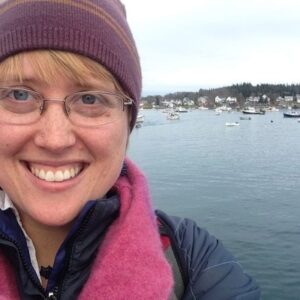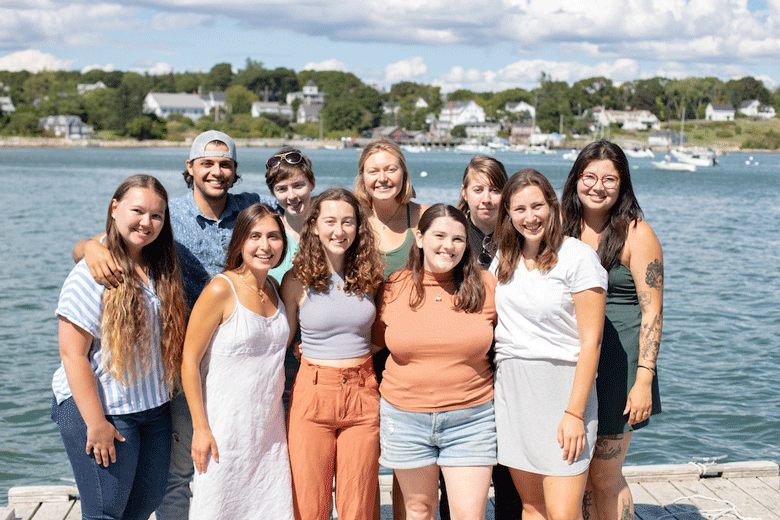Over the 24 years of Island Institute’s Fellows program, we have learned a lot about what it means to be a part of a community. Island Institute Fellows navigate a complex space where work and life often blend together because their job requires building deep relationships in their community.
They can get asked about work while in line at the grocery store, at a potluck, or cheering for the local basketball team. It doesn’t matter if it is a Saturday morning or well after work hours on a Thursday night. Work conversations can happen anywhere at any time. When they first get to their site, we encourage Fellows to attend community events so that people get to know who they are which makes these social occasions work.
As part of their reporting, the Fellows tell us what they have accomplished; they also tell us what is happening within their community. It helps Island Institute staff, who aren’t so closely integrated within the community, form a deeper understanding of challenges and opportunities.
This winter, so many pipes burst in one town during a cold spell that the water tank became too low to function…
For example, one Fellow reported that folks in her community are struggling to find health care. In Washington County there is no urgent care facility. People either need to schedule an appointment to see their general practitioner, go to the ER, or drive more than two hours to the closest urgent care.
When we combine the reports from all ten Fellows who live from Casco Bay to Eastport, we can get a broad picture of the topics impacting the coast.
Some topics are constant no matter what time of year it is. People always have opinions on the state of the roads and when and how their streets should be plowed, sanded, repaved, or maintained. When and if new plow trucks will be on the ballot at town meeting or if their road is scheduled for repair.

Fellows who work in municipal offices get to hear these opinions on the state of the roads and the equipment used to maintain them all the time.
Fellows also hear a lot about the weather. From increased ferry cancellations to unusual cold spells that required a warming center, to the toll that freezes and thaws take on infrastructure. This winter, so many pipes burst in one town during a cold spell that the water tank became too low to function and the town had to issue a water conservation mandate.
In March and April, Maine communities were talking about avian flu, browntail moths, changing post office hours, high school sports, a meteorite, town meeting agendas, fights on Facebook, an exploding air compressor (no one was hurt), a stolen puppy, operating licenses for island services (lapsed, conditional, and up for renewal), new school buses (electric), opioids, seasonal housing, housing in general, changing land use ordinances, the price of lobster, seasonal businesses reopening, and a new memoir written by a notable community member.
As we move into the summer, the conversations Fellows take part in will change from talking about snow and frost heaves to talking about traffic and potholes, and from basketball to baseball.
While some topics like housing, transportation, and healthcare are perennial, other topics are unique, like the meteorite’s falling in Washington County. The Maine Mineral and Gem Society is offering a $25,000 reward for the first rock recovered. That’s certainly something to talk about.





